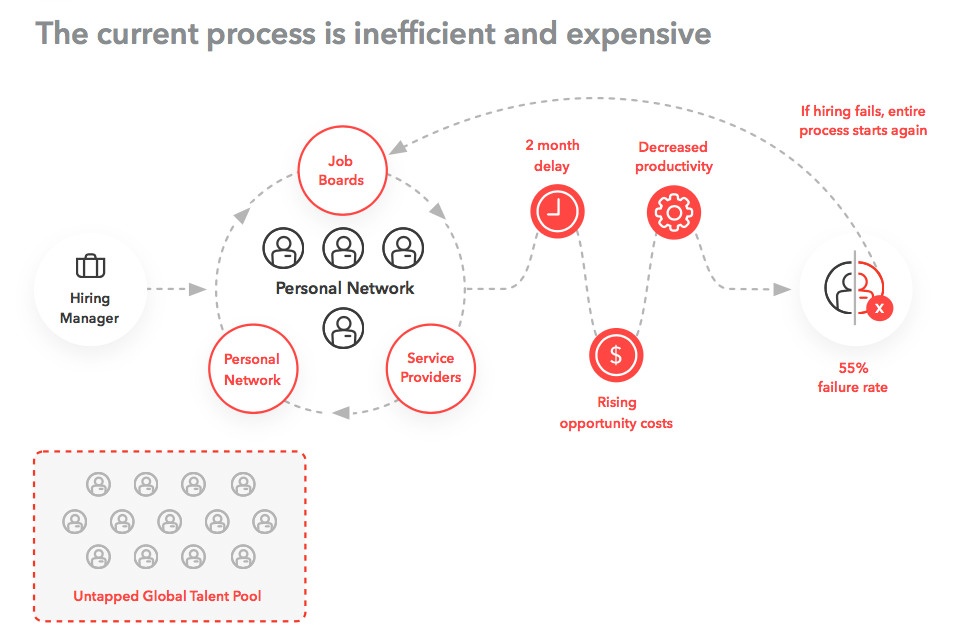Finding the right people to add to your team at just the right time has long been a rate-limiting factor for many life science companies. Many companies face an ongoing need for experienced, battle-tested talent to address the dynamic challenges of the product development process.
According to the U.S. Department of Labor, the price of a bad hire is at least 30% of that employee’s first-year earnings. While the negative financial impact is quantifiable, it doesn’t even encompass the negative effects a bad hire can have on your other employees’ morale and productivity.
Traditional hiring practices (See Figure 1) are often lengthy because of the limited access to a fragmented talent pool of life science development experts. Thankfully, on-demand hiring in the skills-based economy is more inclusive and efficient. These experts can be much easier to find when organized in a central platform like Clora, an innovative Boston company that has pre-identified and pre-qualified a global database of life science experts. This hiring approach can become a key advantage for many life science companies, as they leverage on-demand hiring processes to find the right people at the right time.
In a previous blog post we listed the top traits to look for in a life science consultant. Below we provide tips on what to keep in mind when hiring these consultants to build out your all-star agile team.
Figure 1 – Traditional hiring practices
Understanding What You Need and When You Need It
It’s easier to build an effective agile team once you clearly understand what your team is lacking and what your skill set needs truly are. In order to more efficiently move the product development process forward, it’s important to assess which specific skill sets are needed and when they are needed A common technique used in team building is to look at different angles and ask, “If we do X, what will happen?” and “If we don’t do X- what will happen?” By going through this planning exercise, you’ll be in a better position to build the right team to address you unique challenges.
All-Star Agile Teams Need All-Star Leaders
Talented all-star agile teams led by mediocre managers can be a tragically wasted resource. However, building and managing a superior agile team is no easy task. In many ways, building an all-star agile team is similar to building a full-time in-house team because in both cases work styles and personalities often play an important role.
While a “great personality” may certainly be a positive trait for a leader, it’s often best to focus more on the (potential) leader’s verifiable and tangible accomplishments. One way to evaluate the team building acumen of a leader is to explore how they harness conflict (something that almost always occurs within teams) as an opportunity to leverage different opinions and drive innovation.
What are your thought on the importance of cultural fit for all-star agile teams? We’d love to hear your thoughts, as we’ll be writing more about this topic in future blog posts.






